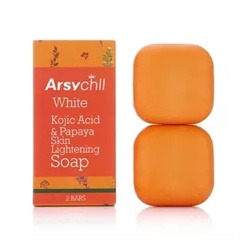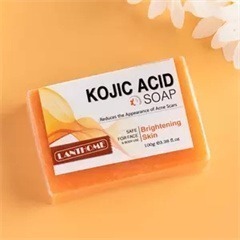1. Look for Gentle, Non-Comedogenic Soaps: Non-comedogenic soaps are formulated not to clog pores, which is crucial for preventing acne. Look for soaps that are specifically labeled as “non-comedogenic” or “suitable for acne-prone skin.” These soaps are usually designed to cleanse without stripping the skin of its natural oils.
2. Avoid Harsh Ingredients: Harsh ingredients, such as sulfates, can strip your skin of its natural oils and disrupt the skin’s balance, leading to more oil production and potential irritation. Opt for soap with gentle and natural ingredients that won’t overly dry out your skin.
3. Consider Ingredients with Benefits: Look for soaps that contain ingredients known to be helpful for acne-prone skin:
- Salicylic Acid: This beta hydroxy acid can exfoliate the skin and penetrate pores to help remove excess oil and dead skin cells. It’s particularly effective for treating blackheads and whiteheads.
- Glycolic Acid: An alpha hydroxy acid that exfoliates and promotes cell turnover, helping to unclog pores and reduce the appearance of acne scars.
- Tea Tree Oil: This natural oil has antibacterial and anti-inflammatory properties that can help manage acne-prone skin.
- Benzoyl Peroxide: An over-the-counter topical treatment that can help kill acne-causing bacteria and reduce inflammation.
4. Avoid Fragrances and Irritants: Fragrances and certain additives can potentially irritate sensitive or acne-prone skin. Opt for unscented or fragrance-free soaps to reduce the risk of irritation.
5. Use Lukewarm Water: When washing your face with soap, use lukewarm water rather than hot water. Hot water can strip your skin of natural oils, potentially causing your skin to produce even more oil to compensate.
6. Follow a Complete Skincare Routine: Using soap is just one part of a comprehensive skincare routine for acne-prone skin. Be sure to include other steps like cleansing, toning, moisturizing, and applying acne treatments or serums as needed.
7. Consult a Dermatologist: If you have severe or persistent acne, it’s recommended to consult a dermatologist. They can provide personalized advice, recommend prescription treatments if necessary, and guide you in choosing the best products for your skin type.
Remember that everyone’s skin is unique, so what works for one person may not work for another. It’s important to do a patch test before incorporating a new soap into your routine and to be patient as you give your skin time to adjust to any new products.





































